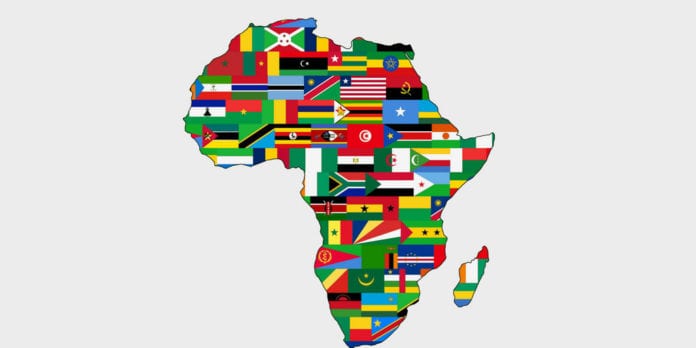In contemporary times, many negative stories of underdevelopment, poverty, and insecurity have emerged from Africa, portraying the continent as a small dot on the world map where only bad things happen. Of course, this has given the ordinary citizen of western world countries the notion that the African continent is entirely devoid of peace. However, in reality, just like every other continent on earth today, the African continent is also made up of very peaceful countries, and they peacefully co-exist with the not so peaceful ones. As a matter of fact, these very peaceful countries in Africa have attracted tourists from all over the world to their shores, mainly because of their tranquility and utter beauty.
It is noteworthy that, as it should be, some of the most peaceful countries in Africa today are also among the most progressive ones on the continent. Over the years, despite the backwardness of some African countries, several other African nations have been able to steer the ship of their collective national interest in the right direction, bolstering their peacefulness and actualizing economic prosperity. The most peaceful countries in Africa are not concentrated in one region but are scattered across the East, West, as well as Southern African regions.
A Current List Of The Most Peaceful Countries In Africa
Interestingly, some of the most peaceful countries in Africa are so peaceful that they rank among the top 30 most peaceful countries in the world on the Global Peace Index. Of the 163 countries on the Global Peace Index, some of these African countries impressively rank among the top 30.
1. Mauritius
- Global Peace Index ranking: 23
- Geographical Location: East Africa
- Population: 1.2 million people
- Year of Independence: 1968
- System of Government: Parliamentary Republic
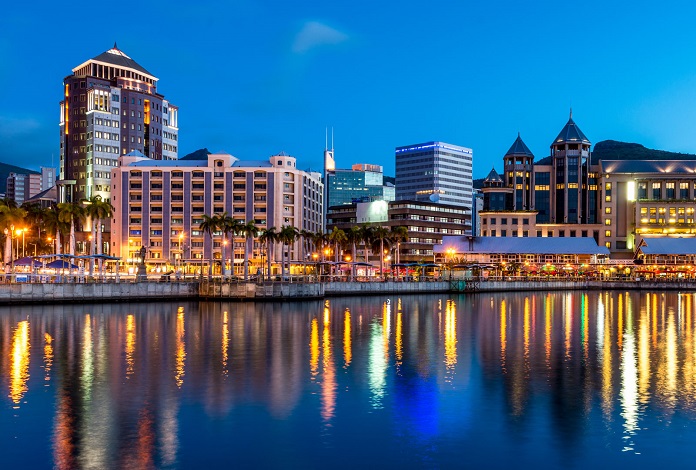
Why Mauritius Is The Most Peaceful Country In Africa
A really picturesque and truly tranquil place, Mauritius is currently ranked as the most peaceful country in Africa, and rightfully so. Out of the 163 countries on the Global Peace Index, the small East African nation is ranked the 23rd most peaceful country in the world.
An island nation in the Indian Ocean, Mauritius has been free from internal and external conflict for decades and has not had tensions with neighboring countries. Even though the country is known to have citizens who are highly diverse in culture, ethnicity, language, and faith, all these different cultures and peoples have come together to unite and live in complete harmony for decades, making way for advancement in the general standard of living and way of life. The crime rate in the country is extremely low and no terrorist attacks have ever been recorded in the country. Also, Mauritius is not known to witness violent demonstrations mainly because the citizens appear very content with how the country is being run by the government.
Because it is an island nation, Mauritius is also known to have some of the best beaches in Africa as well as many other very beautiful tourist attractions, including wildlife. Considering its very peaceful nature and the availability of tourist hotspots, the country has attracted so many people from all over the world who troop to Mauritius every year to savor the aesthetics present in the glorious natural attractions present all over the place.
Apart from its very peaceful state, Mauritius is also ranked as one of the most developed countries in Africa. For many years, it has been ranked very highly for political freedom, democracy, and economic freedom. As a matter of fact, Mauritius is currently the only country in Africa to be listed in the “very high” category on the Human Development Index. As a welfare state, the government of Mauritius ensures that every citizen is provided with free education up through the tertiary level and free universal health care. Also, all senior citizens, students, and disabled persons are provided free public transportation.
A Brief History of Mauritius
Mauritius had a long history of colonialism before it finally gained independence. This is why it has so many people from different cultures and languages. The earliest accounts of how Mauritius was discovered showed that Portuguese sailors, in 1507, first took interest in the islands, however, it was the Dutch who took possession of the island in 1598 before proceeding to set up settlements over a period of about 120 years. Eventually, they abandoned the island in 1710 and France took charge in 1715, naming it Isle de France.
Years later, in 1810, the island was seized by Great Britain who took over control of the area for more than a century. In fact, the nation of Mauritius remained a primarily plantation-based colony of Great Britain until it gained independence in 1968. Upon independence, a new constitution was adopted but Queen Elizabeth II still remained the head of state as Queen of Mauritius. However, in 1992, some 24 years after it gained independence, Mauritius was proclaimed a republic with a president and prime minister.
Over the years, Mauritius has remained highly developed mainly because of the government’s incredible devotion to making life easy for the average Mauritian through democratic practices. Today, Mauritius is known as the only African-related country with a “full democracy”.
The Military In Mauritius
Interestingly, the nation of Mauritius does not have a standing army. This is because all the military, police, and security functions are actively carried out by active-duty personnel who are about 10,000 strong and are under the command of the Commissioner of Police.
It is noteworthy that the National Police Force is charged with the enforcement of domestic law in the country. Even though Mauritius has very cordial relations with other countries, it is also prepared for any eventuality. Currently, it has a special operations military known as ‘GIPM’. The GIPM has been trained to intervene in any terrorist attack.
2. Botswana
- Global Peace Index ranking: 33
- Geographical Location: Southern Africa
- Population: 2.3 million
- Year of Independence: 1966
- System of Government: Parliamentary republic

Why Botswana Is The Second Most Peaceful Country In Africa
Known for its uninterrupted democratic elections and stability, Botswana is currently the second most peaceful country in Africa. The Southern African nation is now ranked 33 out of 163 nations on the Global Peace Index, giving it some bragging right as one of the highly peaceful countries on earth right now. In fact, it used to be the most peaceful country in Africa until it was displaced to number two by Mauritius.
A major trait of Botswana’s constant peacefulness has been the stability it has experienced for decades. It is noteworthy that while the form of government in many neighboring countries has shifted frequently, the nation of Botswana has refused to be influenced and has, instead, been practicing a multiparty democracy since independence which is ”democratic to its core”. Even though there has been some disparity between various groups in the country, Botswana has never witnessed obviously severe critical junctures that could lead to a disturbingly more violent national crisis. This is mainly because the government has always employed a consensus-seeking approach to governance which has helped to keep the people together as one.
There have not been terrorist attacks in Botswana as the Southern African nation maintains a very cordial relationship with other countries. Also, internal strife has been very minimal and has never escalated to a point where it can cause a disruption in national peace.
Apart from its apparent peacefulness, Botswana has also recorded incredibly impressive growth in development over the years. Initially, Botswana was one of the world’s poorest countries because, in the 1960s, it only had a GDP per capita of about US$70 per year. However, the country has since transformed itself and has become an upper-middle-income country, with one of the world’s fastest-growing economies at the moment. It now has one of the highest GDP per capita in Africa and is also ranked to have the highest Human Development Index of continental Sub-Saharan Africa.
A Brief History of Botswana
The area called Botswana today is very old and has been home to people who lived there thousands of years ago. In fact, some stone tools and fauna remains that were found there by archeologists showed that all the different areas of the country were actually inhabited by people at least 400,000 years ago. Also, some archaeological digs have revealed that hominids settled in Botswana about two million years ago, and, in October 2019, researchers claimed that Botswana was actually the birthplace of all modern humans about 200,000 years ago.
Botswana was colonized by Great Britain in 1885 and its name was changed to Bechuanaland at the time. The country remained under its colonial master for more than a hundred years until it got its independence on 30 September 1966. During its decolonization process, the name Bechuanaland was changed to Botswana as the nation became an independent Commonwealth republic.
Since it got independence, Botswana has remained a representative republic and has managed to maintain a consistent record of uninterrupted democratic elections. Also, the country is reported to have the lowest corruption ranking in Africa.
The Military in Botswana
When Botswana attained independence in 1966, the country had no armed forces. It was in 1977 that the Botswana Defence Force (BDF) was formed. The BDF is made up of about 60,000 servicemen, many of whom have adequately received U.S. training.
Over the years, the BDF has been receiving a lot of training on different things but is now mainly trained to prevent poaching and to prepare for disasters, and to undertake foreign peacekeeping missions.
3. Ghana
- Global Peace Index ranking: 43
- Geographical Location: West Africa
- Population: 31 million people
- Year of Independence: 6th March 1957
- System of Government: Unitary Presidential Constitutional Republic
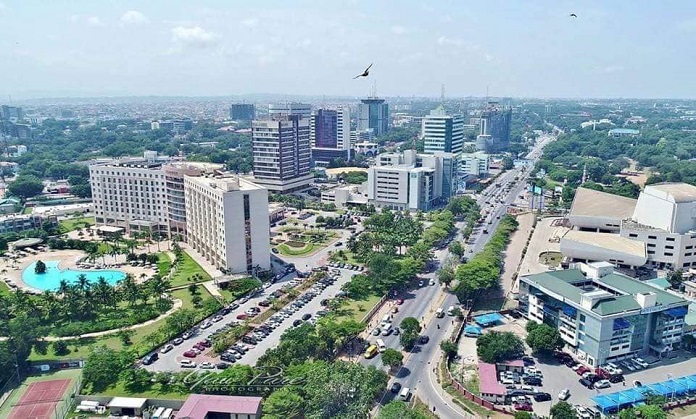
Why Ghana Is The Third Most Peaceful Country In Africa
Known for its very rich cultural history and for being the very first sub-Saharan country to gain independence from colonial rule, Ghana is currently ranked as the third most peaceful country on the African continent. It ranks as the 43rd most peaceful country in the world, putting it ahead of more than 100 other countries on the Global Peace Index.
Ghana is regarded to be one of the least violent countries in Africa mainly because of the way of life of its citizens who are generally peace-loving and friendly. In fact, a 2011 report by Forbes magazine showed that Ghana was ranked the 11th most friendly country in the world. The crime rate in the country is generally considered to be on a moderate level and is declining steadily. The West African country is now highly admired around the world because of its democratic political system and its growing economic prosperity and this has made it a regional influence in West Africa.
Interestingly, Ghana had witnessed severe political violence in the 1960s and 1970s when a number of military coups ravaged the country and set many hearts racing following the killings and public executions of different people. However, in more recent times, the disquiet has given way to a more friendly atmosphere where peace is the watchword. Ghana has not witnessed a terrorist attack and the country has a very cordial relationship with neighboring countries, curbing external strife with other nations. Internal strife is also very minimal even though the country has a variety of ethnic, linguistic, and religious groups.
A Brief History of Ghana
In the 15th century, the Portuguese and several other European powers began to contest the area that is now known as Ghana mainly for trading rights. Eventually, by the late 19th century, Great Britain managed to establish control of the coast and remained in charge as colonial masters for more than a hundred years. Eventually, in the 1940s, political agitations led by Kwame Nkrumah opened the doors for Ghana’s independence from Britain. Finally, on the 6th of March 1957, Ghana gained its freedom.
Shortly after independence, Ghana was riddled with a number of military coups that forced Kwame Nkrumah, the country’s first president, out of power. The new nation subsequently endured alternating military and civilian governments which ended up instigating economic instabilities. However, the reign of the military ended in 1981 when democratic elections were conducted and Flight Lieutenant Jerry John Rawlings came into power.
Ghana’s endangered economy soon recovered during the mid-1980s and the West African nation has refused to turn back on developing its economic frontiers ever since. Today, Ghana has made incredible strides in youth and gender empowerment, economic growth, and good governance.
The Military in Ghana
Ghana is known to have a strong military presence with branches under what is now known as The Ghana Armed Forces (GAF). GAF is the unified armed force of Ghana comprising of the Ghana Army, Ghana Navy, and Ghana Air Force. The nation’s president is the Commander-in-Chief of the Ghana Armed Forces.
Over the years, the Ghana Armed Forces have been heavily involved in international peacekeeping operations and were used extensively to seize power during the coups of the 1960s and 1970s. For some time, the military reigned over Ghana before handing over power to civilians.
4. Zambia
- Global Peace Index ranking: 44
- Geographical Location: East Africa
- Population: 18.3 million people
- Year of Independence: 24 October 1964
- System of Government: Presidential System
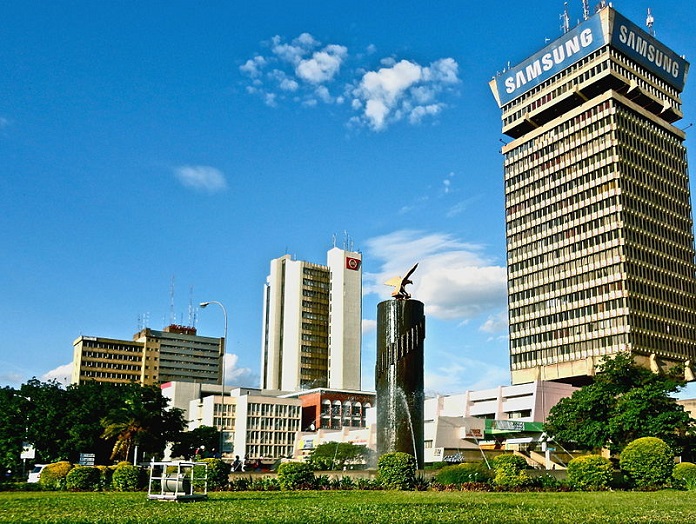
Why Zambia Is The Fourth Most Peaceful Country In Africa
The landlocked East African country of Zambia is known to be one of the peaceful nations of Africa and is, in fact, now ranked as the fourth most peaceful country in Africa. On the Global Peace Index, Zambia ranks as 44th most peaceful in the world, edging past more than 100 other countries on the list.
Zambians are known to be a friendly set of people. In fact, the nation is often regarded as one of the most friendly, diverse, beautiful, and unspoiled countries in Africa. The continuing peace in Zambia has been upheld over the years mainly because of the understanding the citizens have that unity is non-negotiable. This is evident in the country’s motto “One Zambia, One Nation” which stresses the ultimate need for unity among them. There has never been a terrorist attack in Zambia before and, although there have been a few crises in the country, none has been disturbing enough to cause a great rift between the people even though there are over 72 ethnic groups in the country. Zambia further enjoys friendly relations with neighboring nations, meaning that external strife is non-existent.
Apart from its peacefulness, Zambia has also managed to improve social-economic growth. In fact, in 2010, the World Bank named the nation of Zambia one of the fastest economically reformed countries in the world.
A Brief History of Zambia
Before the 13th century, the region now known as Zambia was originally inhabited by the Khoisan peoples. However, the region was infiltrated by Bantu settlers during the Bantu expansion of the 13th century. In the 18th century, European explorers began to arrive in the region, and eventually, the British seized the area and colonized it. During this period of Zambian colonization, the region was governed by an administration appointed from London.
Zambia remained under colonial rule for over 100 years before the country gained independence on 24 October 1964. From 1972 to 1991, Zambia existed as a one-party state, however, from 1991, the country became a multi-party state. It witnessed government decentralization and has gone on to witness several peaceful transitions of power. Today, Zambia is using its abundant natural resources to build an enviable nation.
The Military in Zambia
The military in Zambia consists of the Zambian Army, the Zambian Air Force, and the Zambian National Service which all make up the Zambian Defence Force. All the defense forces were actually formed when Zambia gained independence on 24 October 1964.
Over the years, even though there have not been records of external aggression, the Zambian Defence Force has been trained to resist external threats.
5. Sierra Leone
- Global Peace Index Ranking: 46
- Geographical Location: West Africa
- Population: 8 million people
- Year of Independence: 27 April 1961
- System of Government: Constitutional Republic
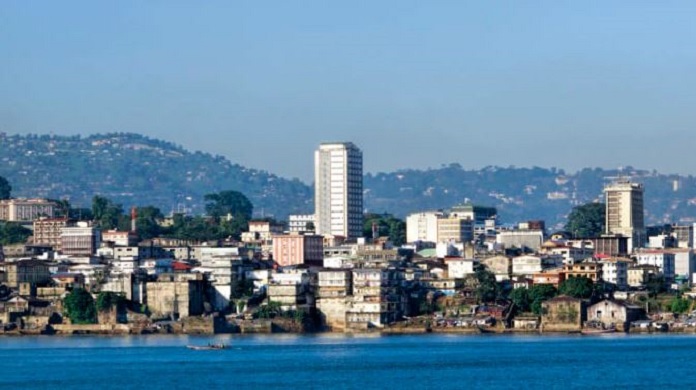
Why Sierra Leone Is The Fifth Most Peaceful Country In Africa
Sierra Leone is the fifth most peaceful country in Africa at the moment and is also ranked as the 46th most peaceful nation in the world according to the Global Peace Index. This is such a big deal for the West African country especially because it has endured a lot of conflicts in the past that threatened its existence.
It is noteworthy that Sierra Leone fought a brutal and deadly civil war that lasted for 11 years from 1991 to 2002 and left about 50,000 people dead. It also endured military coups. This is why ranking as the fifth most peaceful country today is a big deal because it means the country has been able to overcome its troubled past. Today, Sierra Leoneans are generally thought of as a very friendly set of people. Since the civil war ended, Sierra Leone has enjoyed an uninterrupted democratic government and now has a stable political scene.
Sierra Leone has made some really great progress towards political stability and economic growth and Muslims and Christians in the country have become extremely tolerant of each other, a thing which has helped to reduce internal strife to the barest minimum. The country also does not have to combat external strife as it has very cordial relations with other countries.
A Brief History of Sierra Leone
The Limba tribe, who are now the third-largest ethnic group in Sierra Leone, were the first tribe known to inhabit the region. Later, the country became a refuge for people escaping violence and jihads. The region gained massive prominence internationally during the trans-Atlantic slave trade in the 17th and 18th centuries, especially an estuary at Freetown that provided a good natural harbor for slave ships to shelter.
Eventually, in 1895, Britain declared Sierra Leone to be their protectorate and had the region under its colonial wing. Sierra Leone remained under colonial rule for more than 100 years before finally gaining independence on 27 April 1961, with Milton Margai emerging as the country’s first Prime Minister. After independence, the country’s growth was hampered by an 11-year civil war and a military coup, however, since the end of the civil war, stability has returned to the country.
The Military In Sierra Leone
The Military of Sierra Leone, which is officially known as the Republic of Sierra Leone Armed Forces, consists of the Sierra Leone Army, the Sierra Leone Navy, and the Sierra Leone Air Wing.
The Republic of Sierra Leone Armed Forces has been charged with ensuring the territorial security of Sierra Leone’s border and defending the national interests of the country. Also, the President of Sierra Leone is the Commander in Chief of the military.
6. Senegal
- Global Peace Index Ranking: 47
- Geographical Location: West Africa
- Population: 16 million people
- Year of Independence: August 20, 1960
- System of Government: Presidential System
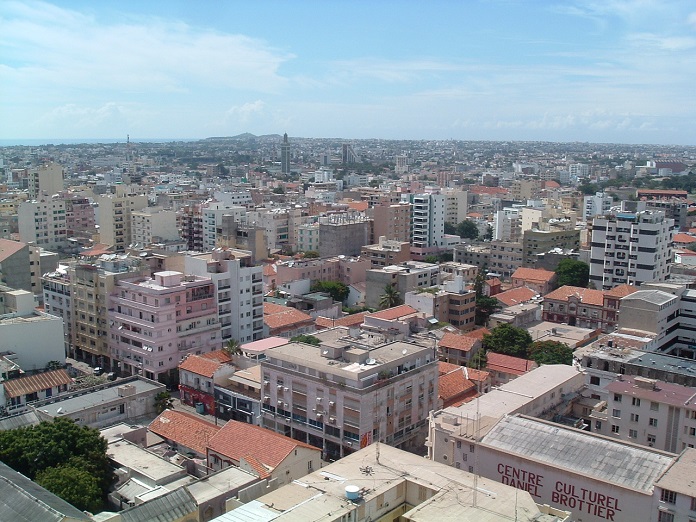
Why Senegal Is The Sixth Most Peaceful Country In Africa
Senegal, which owes its name to the popular Senegal River, is now the sixth most peaceful country in Africa. It is ranked as the 47th most peaceful country in the world, beating out more than 100 other countries on the Global Peace Index. The country is generally considered to be one of the most stable countries in Africa and is admired for its stable democracy. The noninterference of the military in the political affairs of Senegal is regarded to be what has contributed to the country’s stability since independence.
The peacefulness in Senegal is also partly due to the peaceful coexistence of the various religious groups in the country. Religious tolerance has helped in removing internal strife among groups. Also, the country has always been known to foster global diplomatic, financial, and intellectual connections which have all contributed to its huge stability. There has not been any terrorist attacks in Senegal even though nearby countries like Chad and Nigeria have suffered terrorist attacks in recent times. Senegal has instead generally remained peaceful, internally and externally, having developed good relations with other nations.
However, despite its peacefulness, Senegal is also plagued by a number of problems, including low literacy rates, high unemployment rates, and a low human development index. Nearly half of the country’s population lives in poverty. It is however noteworthy that the nation’s economy actually grew by more than 6% per year between 2014 and 2018 before suffering a setback because of the COVID-19 pandemic.
A Brief History of Senegal
The area now known as Senegal is reported to have been inhabited for a long time even in prehistoric times. This claim is supported by archaeological findings. European contact was made with the area in the mid-15th century when Portugal, the Netherlands, and Great Britain engaged in stiff competition for trade in the area. Eventually, France gained control over the region and established its colonial powers over it in 1677.
Senegal remained fully under colonial rule for hundreds of years until the 1960s. The country became an autonomous republic within the French Community on the 25th of November 1958 but it fully became independent on 20 June 1960 with Léopold Sédar Senghor emerging as it’s Senegal’s first president. Since its independence, Senegal has generally enjoyed a stable political scene and has conducted free and fair elections.
The Military in Senegal
The Military of Senegal, officially known as the Armed Forces of Senegal, consists of the Army, Navy, Air Force, and Gendarmerie. The Armed Forces of Senegal are made up of about 17,000 personnel who receive a lot of training and equipment from the United States, France, and Germany.
Over the years, Senegal’s Armed Forces have distanced themselves from politics and this has helped in ensuring the country’s stability. Also, the country is known for participating in many international and regional peacekeeping missions.
7. Tanzania
- Global Peace Index ranking: 52
- Geographical Location: East Africa
- Population: 59 million people
- Year of Independence: December 9, 1961
- System of Government: Presidential Democratic Republic
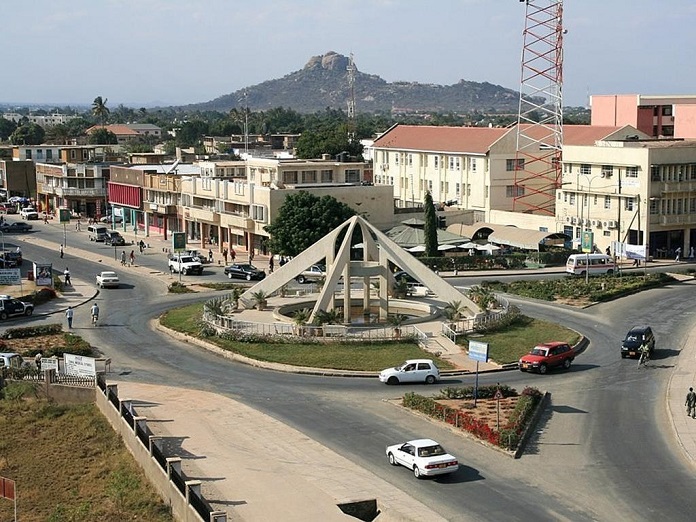
Why Tanzania Is The Seventh Most Peaceful Country In Africa
Known for being the home to Mount Kilimanjaro, the highest mountain in Africa, Tanzania is now the seventh most peaceful country in Africa. It is ranked as the 52nd most peaceful country in the world on the Global Peace Index.
The peacefulness in Tanzania is mainly because of the absence of ethnic or religious animosities which are usually the basis for political conflicts in many other nations around Africa and elsewhere. In fact, it is known that in Tanzania the citizens do not identify with political parties on the basis of ethnicity, religion, and race. Tanzanians have often frowned at leaders or political parties that seek to politicize these factors for their political advantage. There are about 120 ethnic, linguistic, and religious groups in Tanzania but all these different groups have learned to love together. This makes Tanzania a very huge exception from the usual pattern in other countries where religion and ethnicity are used heavily in political discussions.
Tanzania has not suffered any terrorist attacks and internal strife has diminished greatly. Also, since Tanzania has maintained very cordial relations with other nations, external strife has been non-existent. In addition to this, Tanzanians are known to be a very peaceful set of people who simply love living in harmony. The peacefulness in Tanzania does not look like what can be disrupted in the near future.
A Brief History of Tanzania
The region now known as Tanzania is one of the oldest places in the world. It is believed that people have been living in the area for millions of years. In fact, some very important hominid fossils, including a 6-million-year-old Pliocene hominid fossil, have been found in the country.
Later in the Stone and Bronze Age, more people like the Southern Cushitic speakers, the Eastern Cushitic people, the Southern Nilotes, and others began prehistoric migrations into Tanzania. European contact with Tanzania began in the 19th century and the area was conquered by Germany in the late 19th century. Later, on 7 May 1919, Britain took control of the region after it was awarded to it by the 1919 Paris Peace Conference.
During its colonization, Tanzania was divided into two different colonial entities known as Tanganyika and Zanzibar Archipelago. Tanganyika gained independence in 1961 and the Zanzibar Archipelago gained independence in 1963. Finally, the two entities merged together to form the United Republic of Tanzania in 1964. Following its independence and merger, the nation of Tanzania managed to construct a national identity for all citizens and has enjoyed peace for decades.
The Military In Tanzania
The Military of Tanzania, which is known officially as the Tanzania People’s Defence Force (TPDF), consists of the Army (Land Force Command), Naval Command, and Air Force Command. From the time Tanzanian citizens clock 15 years, they are able to volunteer for military service and they must embark on compulsory military service at 18 years upon graduation from secondary school.
The duty of the Tanzania People’s Defence Force (TPDF) is very specific and it is to defend Tanzania and everything Tanzanian.
8. Namibia
- Global Peace Index Ranking: 53
- Geographical Location: Southern Africa
- Population: 2.5 million people
- Year of Independence: 21 March 1990
- System of Government: Presidential Republic
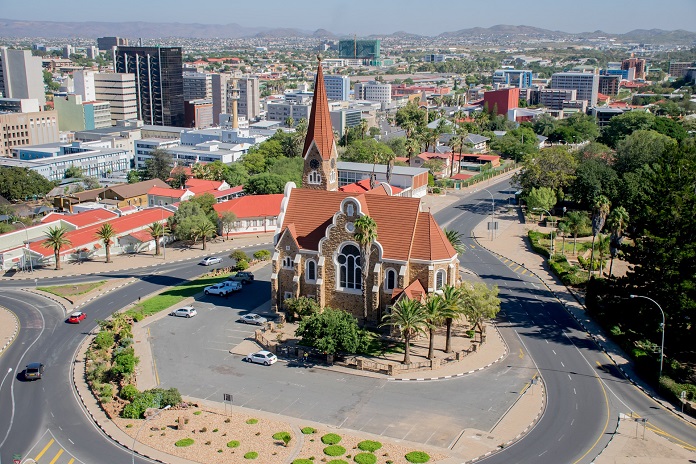
Why Namibia Is The Eight Most Peaceful Country In Africa
Known as the driest country in Sub-Saharan Africa, Namibia is now the 8th most peaceful country in Africa and it is ranked as the 53rd most peaceful country in the world on the Global Peace Index.
Sound economic management and political stability have contributed largely to the peacefulness of Namibia. The country is known to have friendly people who love peace resolutions. Over the years, the risk of political violence in Namibia has grown lower and lower and street demonstrations around the nation are very rare. Even if they do occur, they are not usually violent.
Namibia has not witnessed any terrorist attacks and at the moment, there are no known organized criminal groups operating in the country. In fact, the risk of such evils as kidnapping is also very low in Namibia. Leaders in the Southern African nation are known to enforce discipline among their people.
A Brief History of Namibia
Records have shown that Namibia has been inhabited since early times by different people, including the San, Damara, and Nama people. More people like Bantu peoples arrived in the region around the 14th century. The region soon began witnessing European contact and in 1884, the German Empire gained control over most of the territory. Germany ruled over the region until 1915 when it suffered a defeat by South African forces who took control of Namibia, then known as South West Africa.
Namibia remained under the control of South Africa, suffering apartheid restrictions until later in the 20th century when there were lots of uprisings and political representation was demanded. Eventually, Namibia gained independence from South Africa in 1990. Following its independence, the nation of Namibia has evolved systematically, completing the transition from white minority apartheid rule to parliamentary democracy.
The Military In Namibia
The Military of Namibia, known officially as the Namibian Defence Force (NDF), comprises of Namibian Army, Namibian Navy, and Namibian Air Force. It has its headquarters at Windhoek, Khomas Region, Namibia. The NDF was created when Namibia gained independence from South Africa in 1990 and it is charged with defending the territory and national interests of Namibia.
At the moment, Namibia’s military is ranked as one of the weakest in the world, according to The 2020 Global Firepower Index (GFP).
9. Liberia
- Global Peace Index Ranking: 57
- Geographical Location: West Africa
- Population: 5 million people
- Year of Independence: Although never officially colonized, Liberia declared independence from the USA on July 26, 1847
- System of Government: Presidential Constitutional Republic
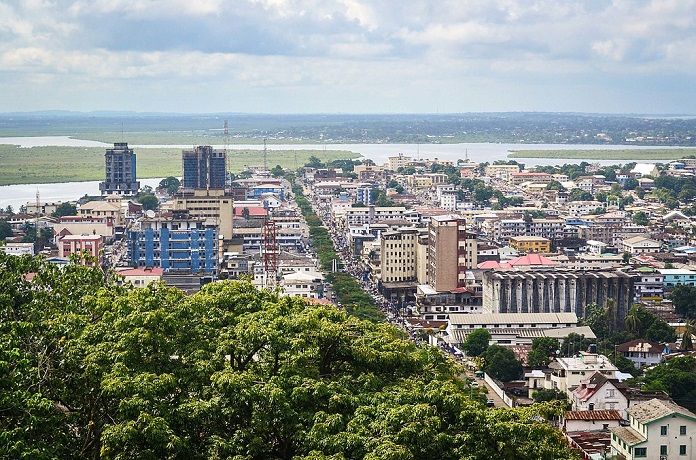
Why Liberia Is The Ninth Most Peaceful Country In Africa
Known to be the very first African republic to proclaim its independence, Liberia is now the ninth most peaceful country in Africa. The West African nation is ranked as the 57th most peaceful country in the world, edging its way past more than 100 other countries on the Global Peace Index.
The fact that Liberia is now counted among the most peaceful countries in Africa is a huge achievement in itself considering the fact the country used to be a very hostile place that was plagued by years of civil war and unrest. The country has suffered two civil wars; the first lasted from 1989 until 1997 and left as many as 250,000 people dead. The second civil war lasted from 1999 to 2003 leaving about 150,000 to 300,000 people dead. However, from 2005 peace has come to stay in the West African country. Political stability has gradually become a reality and democratic elections have been successfully held.
Internal strife has reduced considerably in the past decade as the country makes remarkable peace gains. Also, the risk of terrorist attacks in Liberia at the moment has been described as almost insignificant.
A Brief History of Liberia
The area now known as Liberia has been inhabited by indigenous peoples of Africa for as far back as the 12th century. However, Liberia began to gain some prominence when it became a settlement for the American Colonization Society (ACS) which was made up of free-born and formerly enslaved people in the United States who believed that black people would be better off living in freedom and prosperity in Africa than in America. These people began arriving in Liberia around 1822, formed their community, and married among themselves. They became known as the Americo-Liberian settlers.
The Americo-Liberian settlers did not relate well to the indigenous peoples of Liberia whom they encountered mainly because they believed that they were superior culturally and educationally. As a result, they held on to political power even though they were the minority. Eventually, the settlers, on July 26, 1847, issued a Declaration of Independence from the USA and promulgated a constitution, becoming the first African republic to proclaim its independence, but the USA refused to acknowledge Liberia’s independence until February 5, 1862.
The Americo-Liberians held on to power until 1980 when a military coup killed William R. Tolbert, the 20th president of Liberia who was an Americo-Liberian. The coup threw the country into years-long political instability, followed by the two civil wars until 2003 when a peace agreement was signed between the warring parties. The peace agreement led to the election of Ellen Johnson Sirleaf as president. Sirleaf made history as the first female president on the continent. Peace has reigned in Liberia since this time.
The Military in Liberia
The Military of Liberia, known officially as the Armed Forces of Liberia (AFL), comprises a Military Police Company, a Logistics Command, two infantry battalions, a Service Support Company, and the Liberian National Coast Guard. The AFL was formed in 1908 as the Liberian Frontier Force and was later retitled to the Armed Forces of Liberia in 1956. AFL personnel is known to have received a lot of training and material assistance from the United States.
10. Malawi
- Global Peace Index Ranking: 59
- Geographical Location: East Africa
- Population: 19 million people
- Year of Independence: July 6, 1964
- System of Government: Presidential Republic
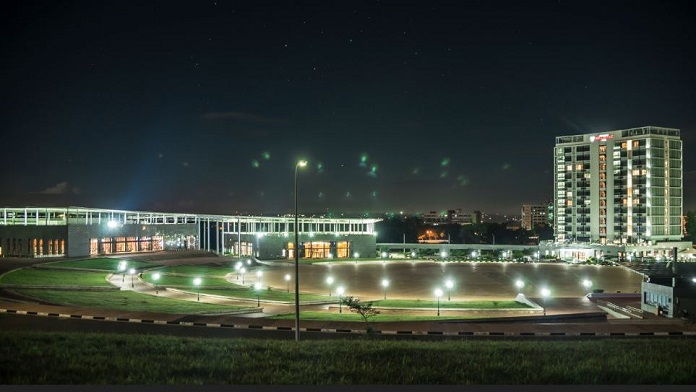
Why Liberia Is The Tenth Most Peaceful Country In Africa
Known officially as the Republic of Malawi, this southeastern African country is the 10th most peaceful country in Africa as it is ranked as the 59th most peaceful country in the world on the Global Peace Index.
Malawi has always been known to be a safe place. The country has had stable governments since it gained independence in 1964. Unlike other nations in sub-Saharan Africa, Malawi has never experienced internal armed conflict or civil war since it gained independence and the people there are generally very friendly.
A Brief History of Malawi
The region now collectively known as Malawi has been inhabited for a long time. In fact, records show that it was inhabited around the 10th century by migrating Bantu groups. Hundreds of years later, the region witnessed European contact and was eventually colonized by the British in 1891. It ended up as a protectorate of the United Kingdom known as Nyasaland. Later, in 1953, the region was made a protectorate within the semi-independent Federation of Rhodesia and Nyasaland.
Eventually, the Federation of Rhodesia was dissolved in 1963 and ended in 1964. Following this development, Nyasaland became an independent country under Queen Elizabeth II and was renamed Malawi, becoming a republic two years later and gaining full independence from the UK. Malawi has enjoyed political stability since its independence and has continued maintaining a culture of peace.
The Military in Malawi
The military of Malawi, known officially as the Malawian Defence Force, comprises of Malawi Army, Maritime Force, and Malawi Air Force. The military, with headquarters in Kamazu Barracks, Lilongwe, is now organized under the purview of the Ministry of Defence. The Malawian Defence Force is responsible for defending Malawi.
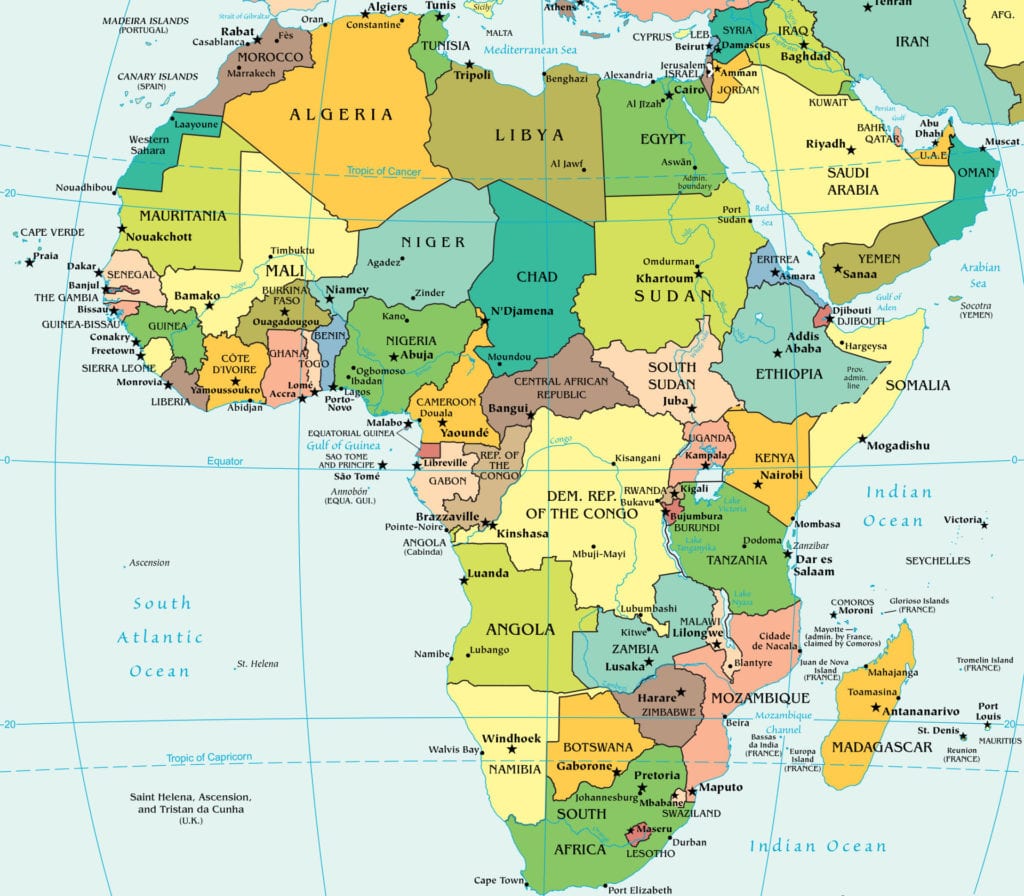
List Of The Least Peaceful Countries In Africa
Even though many African countries are generally peaceful and are highly ranked on the Global Peace Index, as seen above, other African countries are very poorly ranked on the index list and are actually considered to be among the least peaceful countries in the world. As a matter of fact, an African country is actually at the very bottom of the Global Peace Index.
1. South Sudan
South Sudan is the least peaceful country in Africa and has the least ranking on the Global Peace Index, coming in at number 160 out of 160 countries on the index.
2. Somalia
Somalia is the second least peaceful country in Africa and has been ranked 158 on the Global Peace Index, just two places above the last position.
3. The Democratic Republic of Congo
The Democratic Republic of Congo is the third least peaceful country in Africa. The central African country is ranked at 156 on the Global Peace Index.
4. Central African Republic
Another central African country to feature on this list is the Central African Republic which is the fourth-least peaceful country in Africa. It has ranked at 155 on the Global Peace Index.
5. Nigeria
Nigeria is the fifth least peaceful country to live in Africa. The West African country has been ranked 147 on the Global Peace Index.
6. Mali
Mali is now the 6th least peaceful country in Africa and has been ranked 144 on the Global Peace Index.
7. Cameroon
Cameroon is now the 7th least peaceful country in Africa. It has been ranked 141 on the Global Peace Index.
8. Niger
Niger is the 8th least peaceful country in Africa now having been ranked 138 on the Global Peace Index.
9. Eritrea
Eritrea is the 9th least peaceful country in Africa with a ranking of 136 on the Global Peace Index.
10. Chad
Chad is the 10th least peaceful country in Africa now. It has been ranked 134 on the Global Peace Index.
